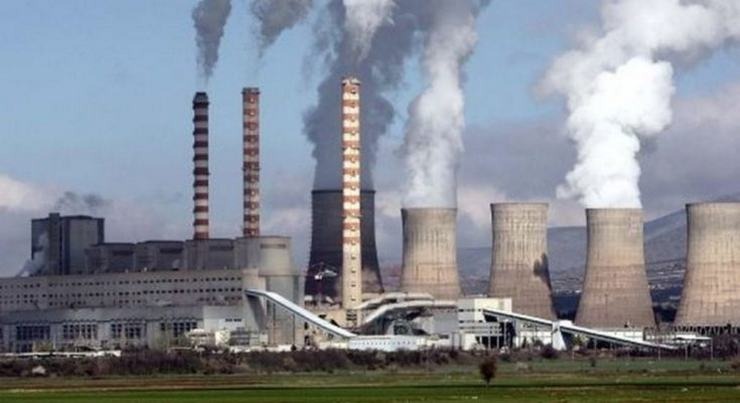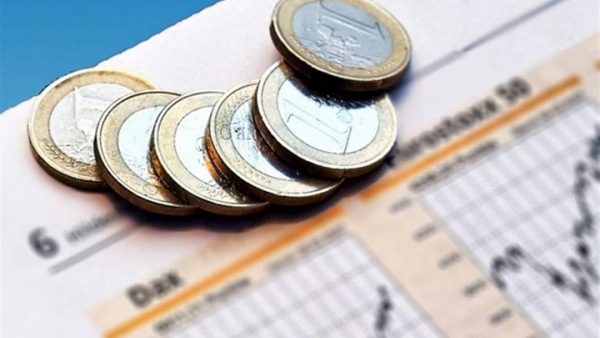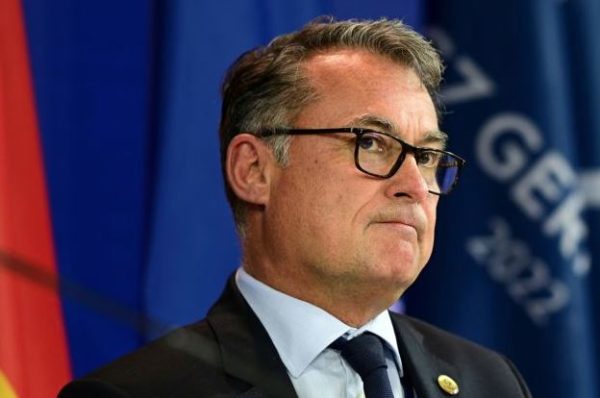
Τhe Greek government plans to cover most of the energy deficit that will arise in the event of interruption of Russian gas flows with the use of lignite and energy savings. Thus, on the lignite front, early lignite divestment has been put on hold and the withdrawal of the lignite units from operation is expected to be delayed for three years. At the same time, a plan to reduce energy consumption in the public sector and municipalities, as well as in industry, is being promoted, without excluding as a last resort the power interruptions in businesses and households.
In particular, with regard to electricity generation from coal, lignite mining will have to increase significantly, in order to double power production, according to the plan, from approximately 5 terawatt hours to 10 terawatt hours to cover approximately 20% of the annual energy consumption in the country. And for this to happen, PPC’s total investments in mines should reach 150 million euros (from 100 million euros today).
As a company official speaking to “Vima” newspaper, new mines must be opened urgently. And as he explained: 2.1 tons of lignite are needed to produce one megawatt. In the last month, lignite has participated in the energy mix with more than 1,215 MW (covering about 17%-20% of the demand), so in 24 hours more than 61,000 tons of lignite are burned, when daily mining, at present, is around 30,000 tons.
Increase in operating hours needed
“The combustion-mining balance is negative. Mr. Skrekas announced the start of operation of the new 660 MW Ptolemaida 5 plant in September. Soon the reserves will run out and current mining is not enough. If no new fields are opened, the operation of the 4 to 7 lignite units provided for in the emergency plan for the energy sufficiency of the country will not be guaranteed” notes the same source, pointing out that the Pontokomi field or the private mine of Achlada can provide a solution, for which, however, it should be tendered in order to avoid snags with the individual who has been exploiting it until today.
However, it is a matter of concern that the country’s lignite units operate under an exemption regime, i.e. they can exceed European limits of gaseous pollutant concentrations provided they operate for limited hours, which in some units will run out by 2023 and in others by 2025. In order to operate more hours, PPC will have to shoulder the burden of expensive and time-consuming upgrades. However, a government official maintains that a solution will be found for the operation of the lignite units.
Energy savings problems
Strategies to deal with the energy crisis next winter include energy saving. The decision has already been issued that provides incentives to municipalities and public bodies to reduce their consumption by 10% compared to 2019. Also, the voluntary reduction of consumption in industry is included in the Regulatory Authority for Energy’s action plan.
However, the government is expected to start consultations with industrial consumers to reach a concrete agreement on load cuts during the critical winter months if deemed necessary. In fact, Prime Minister Kyriakos Mitsotakis has submitted a request to the Commission for the creation of a European compensation mechanism for energy-intensive industries that proceed to load cuts, which if not accepted, funds will be sought for the creation of a national Greek fund.
As for saving energy in local authorities, there is a huge gap between words and deeds. “It is not easy for one out of 10 street lamps to go out. First of all, there is the issue of security within the cities. Possibly, it could be done on regional or national roads. Secondly, it is not practically easy either, as it requires months of work by workcrews. We are talking about thousands of light bulbs. In Trikala alone, 10% means around 2,500 lamps. Big savings could be made in swimming pools – we pay 15,000-20,000 euros a month in gas bills to operate them -, in fountains, or in the decorative lighting of buildings” points out the president of the Central Union of Municipalities of Greece, Mr. Dimitris Papastergiou. And he adds: “Due to over-leveraging, about 100 municipalities, for years, have not been able to get loans for projects to save from street lighting, even though they are self-financed. If this exemption had been granted, the savings would have already been made.”
Latest News

IMF: US Tariffs Shake Global Economy, Outlook Downbeat
IMF slashes global growth forecast to 2.8% as U.S. tariffs create uncertainty and ‘negative supply shock

First Step Towards New Audiovisual Industry Hub in Drama
The project is set to contribute to the further development of Greece’s film industry and establish Drama as an audiovisual hub in the region

Airbnb Greece – Initial CoS Ruling Deems Tax Circular Unlawful
The case reached the Council of State following annulment applications filed by the Panhellenic Federation of Property Owners (POMIDA)

Mitsotakis Unveils €1 Billion Plan for Housing, Pensioners, Public investments
Greek Prime Minister Kyriakos Mitsotakis has announced a new set of economic support measures, worth 1 billion euros, aiming to provide financial relief to citizens.

Alter Ego Ventures Invests in Pioneering Gaming Company ‘Couch Heroes’
Alter Ego Ventures' participation in the share capital of Couch Heroes marks yet another investment by the Alter Ego Media Group in innovative companies with a focus on technology.

Corruption Still Plagues Greece’s Driving Tests
While traffic accidents continue to claim lives on Greek roads daily, irregularities and under-the-table dealings in the training and testing of new drivers remain disturbingly widespread

Pope Francis Died of Stroke and Heart Failure Vatican Confirms
As news of the official cause of death spread, tributes poured in from across the globe. The 1.4 billion-member Catholic Church is united in grief, remembering a pope who championed inclusion, justice, and compassion

Increase in Both Museum Visits, Revenues for 2024
As expected, the Acropolis was the top archeological site in the country, followed by Sounion, Mycenae, the ancient theater of Epidaurus, and Vergina in northern Greece

Where Greece’s Tourists Come From: A Look at 2025’s Top Visitor Markets
The United Kingdom continues to hold the top spot as the largest source of incoming tourism, with 5.6 million seats booked for Greece this summer — up 2.2% from last year. This accounts for 20% of all international air traffic to Greece

Pope Francis: A Pontiff Who Reshaped the Papacy and Sparked a Global Conversation
His first words from the balcony of St. Peter’s Basilica—“Brothers and sisters, good evening”—set the tone for a pontificate that would challenge norms, favor mercy over dogma, and bring the papacy closer to the people.












![Πλημμύρες: Σημειώθηκαν σε επίπεδα ρεκόρ στην Ευρώπη το 2024 [γράφημα]](https://www.ot.gr/wp-content/uploads/2025/04/FLOOD_HUNGRY-90x90.jpg)



![Ξενοδοχεία: Μεγάλο το ενδιαφέρον για επενδύσεις στην Ελλάδα – Η θέση της Αθήνας [γραφήματα]](https://www.ot.gr/wp-content/uploads/2025/03/Athens-hotels-90x90.jpg)
























 Αριθμός Πιστοποίησης
Αριθμός Πιστοποίησης